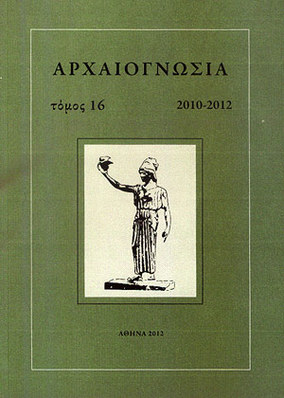Η έννοια του «έθνους» στον Ηρόδοτο
Part of : Αρχαιογνωσία ; Vol.11, No.1-2, 2001, pages 249-271
Issue:
Pages:
249-271
Parallel Title:
The concept of a “nation” in Herodotus
Section Title:
Σύμμεικτα
Author:
Abstract:
A passage in the eighth book of Herodotus (144) has been often regarded by scholars as defining the “Greek nation” and even as containing the basic elements for a general definition of nations at large. It is argued in the present paper that this is not the case. To begin with, the context is quite inappropriate for any kind of definition. During the political negotiations between the Athenians and the Spartans it should not be expected that discussions over definitions would arise. More importantly, a careful examination of the elements involved reveals that, according to Herodotus, they did not represent the essence of the Greek nation. They were purely signs, by no means permanent and stable, by which the Greeks of the period could recognize each other. Furthermore, it is also argued that in the relevant discussions no major significance was attributed to territorial claims or to the possibility of a permanent political unity of the various Greek cities.The comments made in the present paper do not attempt to diminish the significance of nations (ethne) in the world thought of Herodotus. On the contrary, it is argued that they were to such a degree taken for granted that no definition was called for. A brief postscript provides information regarding the way Herodotus’ treatment of nations was understood by some of his later readers. Herodotus, they thought, believed that the essence of the various nations was established by divine providence.
Subject (LC):
Keywords:
Ηρόδοτος




